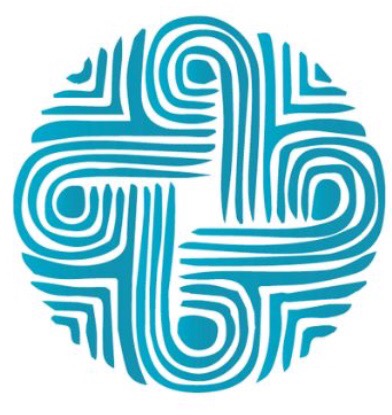Perimenopause Isn’t a Problem to Fix: A View from the Lens of Chinese Medicine for the Midlife Woman
- Pellegrino Healing Center

- Apr 30, 2025
- 3 min read
Updated: Jun 4, 2025
By Stefanie Vidal, L.Ac.

Somewhere in our late 30s or early 40s, many of us begin to feel an internal shift.
Maybe your cycle becomes less predictable. Maybe your sleep is off, your emotions feel
just under the surface, or your body temperature fluctuates so much it feels like the
thermostat is broken. Maybe you can’t quite name what’s changing, but you know
something is.
This phase of life is often labeled perimenopause—a word that’s become synonymous
with imbalance, depletion, and decline. But what if there is another perspective?
In classical Chinese medicine, this time is not seen as something to be fixed. It’s
honored as a turning point—a sacred initiation into deeper self-connection and clarity.
The Ancient View: A Sacred Cycle
According to the Huang Di Nei Jing, the foundational text of Chinese medicine, a
woman’s life unfolds in seven-year cycles. Around the age of 42, the sixth cycle begins.
The body starts to conserve resources, and energy naturally turns inward. This is not a
malfunction—it’s a redirection.
As the Bao Mai, an energetic channel between the Heart and Uterus, opens more fully,
a woman may experience not just hormonal shifts, but emotional and spiritual ones as
well. Questions about purpose, identity, and boundaries often arise. In this view,
perimenopause is a time of reconnection with your body, your spirit, and your truth.
If we listen deeply, perimenopause becomes not a time of loss, but of deep knowing. It
can become an opportunity to look at ourselves – our lifestyle habits regarding exertion
and rest, how we nourish ourselves with food, and how we manage our resources,
internally and externally, with intention.
Common Experiences During Perimenopause
Perimenopause typically begins in the mid- to late 30s and can last into the 50s. You
may experience:
Irregular or heavier periods
Anxiety, irritability, or low mood
Trouble sleeping or night sweats
Fatigue and decreased stamina
Brain fog or forgetfulness
Changes in libido
Western medicine often focuses on hormones—estrogen, progesterone, and their
fluctuations. Chinese medicine looks deeper: it asks what systems are being taxed,
what energies are depleted, and what needs to be expressed or released.
5 Ways to Support Yourself During Perimenopause
Here’s how you can nourish this transition with more intention and ease:
1. Align with Your Cyclical Nature
Even if your cycle is irregular, your body still flows with the rhythms of Yin and Yang.
Listen to when your body calls for rest vs. when it feels more energized. Living
cyclically—seasonally, monthly, even daily—can soften the intensity of symptoms.
2. Nourish Kidney and Spleen Qi
Your Kidneys govern longevity and hormonal balance; your Spleen governs digestion
and emotional steadiness. Eat warm, grounding foods. Prioritize rest. Avoid skipping
meals. Acupuncture and herbs can help restore energy and support these organ
systems.
3. Create Space to Reflect
As the Bao Mai reactivates, your Heart wants to speak. Make time to journal, meditate,
or simply sit in stillness. This is not a luxury—it’s medicine for the soul.
4. Move Stagnant Liver Qi
Repressed emotions and overwork can cause tension, irritability, and sleep disruption.
Gentle movement, acupuncture, expressive practices such as dance, singing, qi gong
and yoga, and even honest conversations can help move this energy and restore flow.
5. Seek Community & Support
This transition can feel isolating, but it’s meant to be shared. Women’s circles, one-on-
one acupuncture, or simply talking with a trusted friend can remind you: you are not
alone.
Reframing the Midlife Years

Perimenopause is not the end of your vitality—it’s the beginning of a new kind of power.
In Chinese medicine, this phase is honored as a return to the self. Your energy is no
longer just moving outward—it’s coming home.
If you’re moving through this transition and want to feel more grounded, clear, and
supported, acupuncture can be a beautiful tool to help you reconnect with your body’s
wisdom.
You don’t need to push through or “fix” this phase—you can learn to move with it,
honoring your body every step of the way.
If you’re navigating these changes and feel the call to reconnect with yourself, know that
you’re not alone—and you don’t have to walk it alone.
“The doors to the world of the wild Self are few but precious. If you have a deep
scar, that is a door; if you have an old, old story, that is a door. If you love the
sky and the water so much that you almost cannot bear it, that is a door. If you
yearn for a deeper life, a full life, a sane life, that is a door.”
— Clarissa Pinkola Estés
This transition is not the closing of a chapter—it’s the opening of a doorway. Let yourself
walk through it.
—
By Stefanie Vidal, L.Ac.
Licensed Acupuncturist at Pellegrino Healing Center
Offering Classical Chinese Medicine and Acupuncture for Women’s Health, emotional
balance, and spiritual clarity.
.png)







PHC, thank you for the post.
At one point my cycle disappeared for 11 months and then, unexpectedly, I spent a week on the couch making up the time.
I was almost "through the doorway" but nope, not yet! I thanked God I kept the supplies for my nieces and it gave hubby a reason for my cranky mood swings.
Fortunately, the lack of insurance coverage for holistic care is slowly changing and these kinds of posts are valuable for people unaware of the benefits alternative treatments offer.
Your writing is beautiful, Stefanie, and I appreciate the clarity on a feeling I didn't understand.
💛